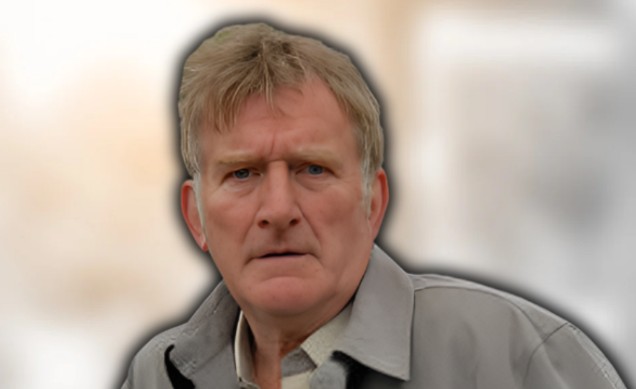Malcolm Storry: A Distinguished Career on Stage and Screen

Malcolm Storry is one of Britain’s most accomplished and versatile actors, a figure whose work across stage, television and cinema has spanned more than five decades. Born on 13 January 1948 in Kingston upon Hull, East Riding of Yorkshire, he has built a reputation for authority, emotional depth and an ability to inhabit characters from a wide range of eras and genres. From Shakespearean roles with the Royal Shakespeare Company to memorable appearances in popular films and television dramas, Malcolm Storry has consistently demonstrated an artistry that commands respect.
Early Life and Training
Growing up in post-war Yorkshire, Malcolm Storry displayed an early curiosity about the world of performance. He was educated locally and initially considered a career as an aircraft pilot before the lure of acting proved irresistible. His natural presence and keen sense of storytelling led him to train at Bretton Hall, an institution renowned for its emphasis on practical theatre work and creative exploration. This training provided him not only with technical grounding but also with the confidence to experiment across different dramatic forms.
After leaving Bretton Hall, Storry’s earliest professional work came in 1969 as an assistant stage manager in Manchester. These formative years behind the scenes gave him a valuable understanding of how theatre operates as a collaborative art, sharpening his appreciation of timing, stagecraft and the importance of every element of production. This backstage experience would later inform the precision and discipline for which he became known as a performer.
Breakthrough in Theatre
Malcolm Storry’s rise to prominence began in classical theatre, where his commanding physical presence and rich, expressive voice made him a natural fit for the works of William Shakespeare. His long association with the Royal Shakespeare Company allowed him to tackle some of the most demanding roles in the dramatic canon. Among these were Prospero and Caliban in The Tempest, Macduff and Banquo in Macbeth, and Bottom in A Midsummer Night’s Dream. Each of these characters demands a different balance of strength and subtlety, and Storry brought a distinctive energy to every performance.
Critics often praised his ability to capture both the grandeur and the human vulnerability of Shakespeare’s creations. Whether portraying the regal yet weary Prospero or the earthy, comic Bottom, he revealed layers of character that kept audiences engaged and provoked fresh insights into familiar texts. His success with the Royal Shakespeare Company cemented his reputation as a serious classical actor and opened doors to a wide variety of future projects.
Expansion into Modern Drama
While Shakespeare provided the foundation of his career, Malcolm Storry was never content to remain within a single tradition. He extended his range to include modern plays, tackling contemporary themes and new writing with the same commitment he brought to the classics. His work encompassed both West End productions and regional theatres, reflecting his belief in making quality drama accessible to a broad public. This willingness to embrace modern material kept his performances relevant and ensured that he remained a dynamic presence in the ever-evolving landscape of British theatre.
Film Roles and International Recognition
Malcolm Storry’s talents soon attracted the attention of filmmakers, and his transition to the screen was seamless. International audiences first encountered him in The Princess Bride (1987), where he played Yellin, the castle’s gatekeeper. The film, now a cult favourite, introduced his powerful yet understated screen presence to viewers far beyond the United Kingdom.
He followed this with appearances in major productions such as The Last of the Mohicans (1992), portraying Phelps, and The Scarlet Letter (1995), in which he played Major Dunsmuir. In The Man Who Knew Too Little (1997), he displayed a flair for comedy as Chief Inspector Cockburn. These roles demonstrated his ability to adapt to different genres, from historical adventure to satire, and they secured his reputation as a dependable and compelling film actor.
Even in smaller roles, Storry brought gravitas and credibility. His later appearance in Darkest Hour (2017) as General Ironside offered a reminder of his enduring relevance and his capacity to convey authority with quiet assurance. His filmography reflects a balance of character parts and ensemble work, showing an actor comfortable both in the spotlight and as part of a collaborative team.
Television Work and Popular Appeal
Television audiences in the United Kingdom have long enjoyed Malcolm Storry’s performances in a wide range of programmes. He is perhaps best known for playing Clive Tishell in the much-loved series Doc Martin, where his portrayal of the occasionally exasperated husband of the local pharmacist added texture and humour to the show’s Cornish setting. More recently, his role as Red Morgan in the critically acclaimed western drama The English highlighted his continued ability to bring depth and intensity to complex characters.
His credits include appearances in Father Brown, New Tricks, Above Suspicion, Jekyll and The Shadow Line, among many others. This extensive television work demonstrates both his versatility and his capacity to appeal to diverse audiences. Whether in crime drama, period piece or contemporary mystery, Malcolm Storry delivers performances marked by precision and emotional truth.
Craft and Acting Style
Observers of Malcolm Storry’s work frequently remark on his commanding stage presence and the clarity of his delivery. His tall frame and resonant voice give him natural authority, yet he couples these physical gifts with a keen understanding of psychological nuance. He approaches roles with a careful balance of intellect and instinct, creating characters who feel at once larger than life and recognisably human.
Storry himself has spoken of the importance of teamwork in theatre and film, recognising that an actor’s success depends on collaboration with directors, writers and fellow performers. His early experience behind the scenes informed a professional ethos grounded in respect for every aspect of production. This humility, combined with his formidable skill, has earned him admiration from colleagues and critics alike.
Personal Life
Away from the stage and camera, Malcolm Storry has maintained a stable and private family life. He married Jennifer Ruth Udale in 1972, and together they have raised three children: Richard Alec, Vivienne and Francesca Elizabeth. Despite the demands of an international acting career, he has often emphasised the importance of family and the grounding it provides. His ability to balance personal commitments with a thriving professional life stands as an example to younger performers navigating the challenges of the industry.
Legacy and Influence
The influence of Malcolm Storry extends well beyond his individual performances. For aspiring actors, his career illustrates the value of rigorous training, versatility and a willingness to embrace both classical and modern material. His longevity in a competitive profession testifies to his talent and to the respect he has earned from audiences and peers. The characters he has inhabited—from Shakespearean heroes to modern television personalities—continue to resonate because he approaches each with seriousness and imagination.
In an era when the performing arts face constant change, Storry’s career serves as a reminder of the enduring power of live theatre and the importance of craft in all forms of storytelling. Younger actors looking to balance stage and screen work can learn from his example: stay curious, respect the text and never stop developing your skills.
Conclusion
Malcolm Storry stands as a distinguished figure in British performing arts, a consummate professional whose work across theatre, film and television has left a lasting mark. From his early days at Bretton Hall to acclaimed roles with the Royal Shakespeare Company and memorable appearances in international cinema, he has demonstrated a rare combination of versatility and depth. His ability to inhabit characters with both authority and subtlety has earned him the admiration of critics and audiences for more than half a century. For those who value the enduring craft of acting, the career of Malcolm Storry remains a shining example of dedication, artistry and integrity.



